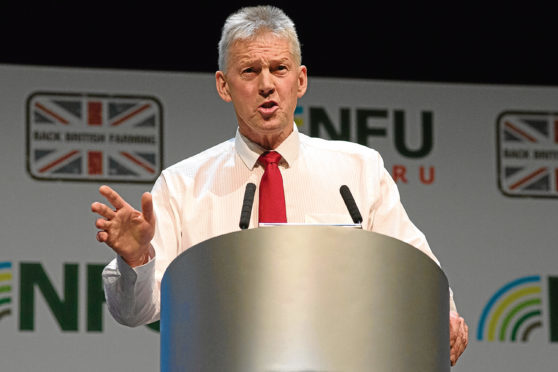The sheer speed and scale of the coronavirus epidemic leaves me struggling to come to terms with the massive impact it is having on the way we lead our lives.
If I had suggested to you a month ago that within weeks thousands of people would be dead, we would be locked in our homes and economies across the world would be on the verge of collapse, you would have laughed at me. Yet that is the reality we face today.
Who could predict that an animal virus would jump to humans in a Chinese wet market and in the space of four months go on to kill more than 25,000 people and threaten world economies with ruin?
In my lifetime I have lived through BSE, foot and mouth and at least three major economic downturns.
The oil shock and the three-day working week in the 1970s was the worst with rampant inflation and a miners strike which brought the country to its knees. It forced us to buy a generator to milk the cows because we had no lights or power for four days every week.
However, these events pale into insignificance compared to the threat from Covid-19. It threatens our lives. It threatens our jobs and livelihoods. And it threatens long-lasting damage to our economy.
I don’t envy our Prime Minister Boris Johnson as he struggles to balance the need to do everything possible to save lives, alongside the need to prevent irreparable damage to our economy which risks blighting the next generation’s future. An impossible juggling act.
Usually I am pretty blase about threats to my health, probably because I have hardly had a sick day off work in my life, but I am taking Covid-19 really seriously. I am locked in, working from home, and avoiding people like the plague when I go for my daily walk.
It must be down to being a 63-year-old who has suddenly woken up to the reality of being pretty close to inclusion in the high risk category of people who are more likely to die from the virus.
For the general public this has been a huge wake-up call as they discover that supermarket shelves groaning with every possible kind of food 24 hours a day are not a given.
Over the last year the farming industry has been kicked from pillar to post, accused of killing the planet and destroying the countryside.
Yet as panic set in over Covid-19, people’s immediate reaction is to rush to the shops to buy food and stockpile it as if it was wartime.
Overnight the food industry has gone from being public enemy to being recognised by government as an essential industry on a par with the NHS.
This crisis should be a wake-up call to UK ministers tempted to sacrifice UK agriculture in future trade deals. Surely the lessons from the empty supermarket shelves is that future UK agriculture trade policy should have at its heart the preservation of a sustainable UK food industry capable of feeding the nation.
Finally, I shouldn’t, but I can’t help smiling at the deep irony of Boris Johnson not being allowed out in public unless he has two experts by his side.
- George Lyon is a former MEP. He is a senior consultant for Hume Brophy, and sits on the board of levy body AHDB.
